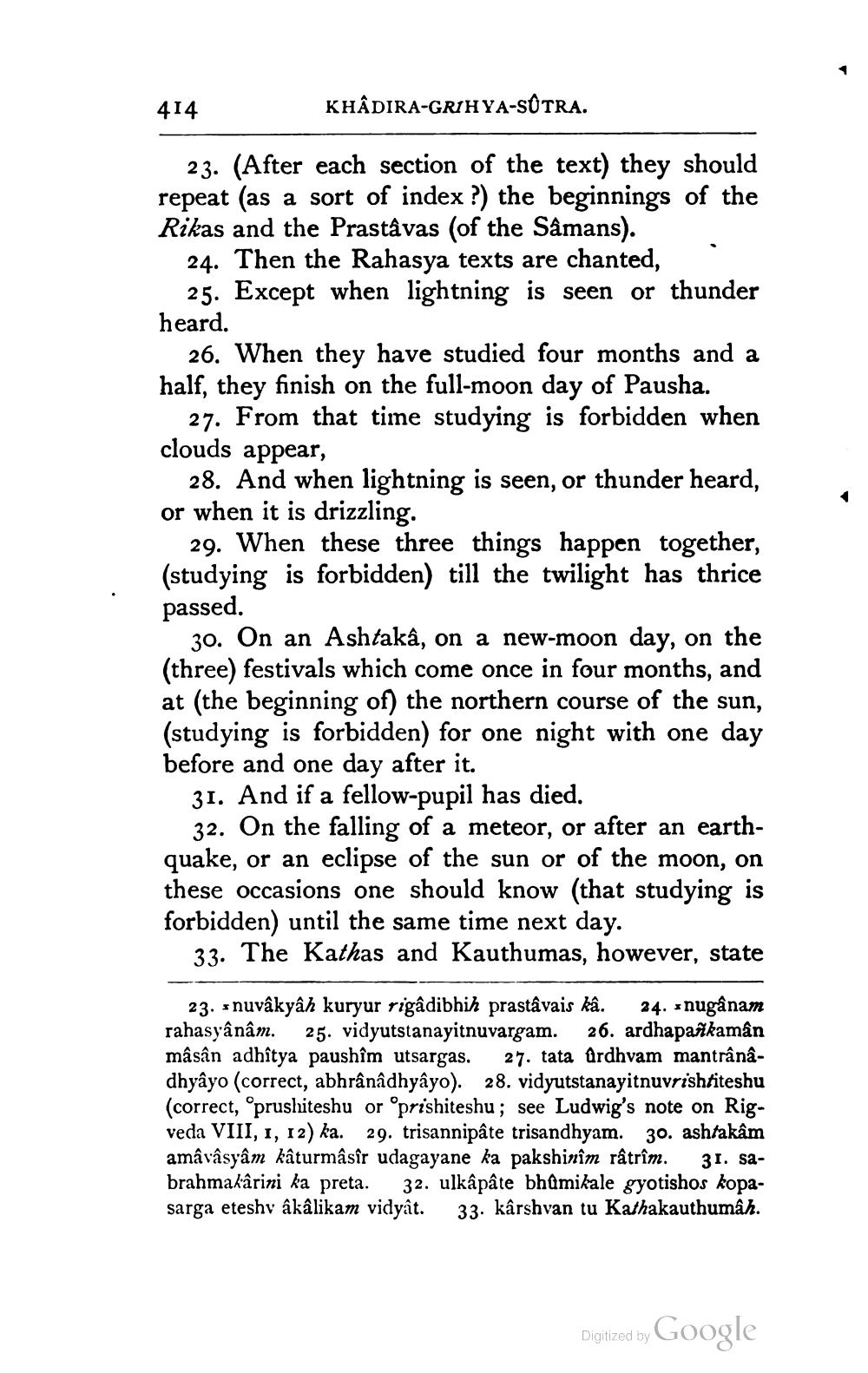________________
414
KHÂDIRA-GRIHYA-SOTRA.
23. (After each section of the text) they should repeat (as a sort of index ?) the beginnings of the Rikas and the Prastāvas (of the Sâmans).
24. Then the Rahasya texts are chanted,
25. Except when lightning is seen or thunder heard.
26. When they have studied four months and a half, they finish on the full-moon day of Pausha.
27. From that time studying is forbidden when clouds appear,
28. And when lightning is seen, or thunder heard, or when it is drizzling.
29. When these three things happen together, (studying is forbidden) till the twilight has thrice passed.
30. On an Ashtaka, on a new-moon day, on the (three) festivals which come once in four months, and at (the beginning of) the northern course of the sun, (studying is forbidden) for one night with one day before and one day after it.
31. And if a fellow-pupil has died.
32. On the falling of a meteor, or after an earthquake, or an eclipse of the sun or of the moon, on these occasions one should know (that studying is forbidden) until the same time next day.
33. The Kathas and Kauthumas, however, state
23. s nuvâkyâh kuryur rigâdibhih prastavais kâ. 24. snugânam rahasyânâm. 25. vidyutstanayitnuvargam. 26. ardhapankamân mâsân adhîtya paushîm utsargas. 27. tata ûrdhvam mantrânâdhyâyo (correct, abhrânâdhyâyo). 28. vidyutstanayitnuvrishtiteshu (correct, oprushiteshu or 'prishiteshu ; see Ludwig's note on Rigveda VIII, 1, 12) ka. 29. trisannipâte trisandhyam. 30. ashtakam amâvâsyâm kâturmâsîr udagayane ka pakshinîm râtrîm. 31. sabrahmakârini ka preta. 32. ulkâpâte bhQmikale gyotishos kopasarga eteshv âkâlikam vidyât. 33. kârshvan tu Kathakauthumah.
Digitized by Google




